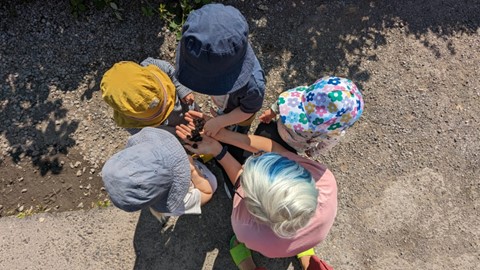The experience and opportunities that children have in their very earliest years has so much influence on the rest of their lives. It lays foundations for their ongoing education and potential to succeed within school and into work. But the qualities of these early experiences also impacts across all sorts of other areas, from their chances of being healthy and well, to risks of exposure to crime and their ability to contribute as part of their communities and societies.

Getting these are the building blocks right is critical for the children involved – but it is also key to building a Greater Manchester which is vibrant, safe, secure and successful. In recognition of this the Greater Manchester Combined Authority has made improving early years outcomes a real priority. To achieve this it is working to coordinate employers and councils across Bolton, Bury, Manchester, Oldham, Rochdale, Salford, Stockport, Tameside, Trafford and Wigan.
But this work recognises that the key to delivering change is supporting the people who work with our youngest children. We need to make sure you have access to training and development opportunities and recognition for your skills and knowledge – and this free online course is part of that offer.
Our workforce is large and varied. It consists of formal roles, including early years and childcare practitioners, health visitors, midwives, teachers, family support workers, and those in specialist health and social care roles; and also the wider workforce who may not have direct responsibility for children’s outcomes but play a key role in the planning and delivery of services for them.
And of course, it consists of an even larger ‘informal’ workforce. Some of these are volunteers and those who work with children incidentally as part of their jobs. But most of all it consists of parents, families and communities – all of whom contribute the most critical support to our region’s children.
Whatever you bring to this course in terms of prior experience and formal or informal role, it aims to develop your insight into some of the most fundamental principles of child development.
So let’s get stuck in! Click the ‘mark complete’ button below to proceed.






